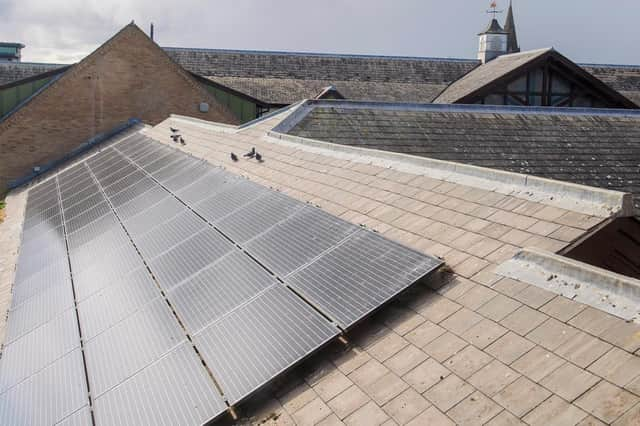NKDC opts to spend £150k on extra solar panels on its offices to cut energy bills


NKDC’s executive board agreed the plan at a recent meeting and installation is expected to reduce the authority’s electricity costs by as much as 25 per cent and save over 20 tons of C02 per year.
Upon completion, the project will see 230 solar panels installed on the Kesteven Street building at an estimated cost of £150,000, drawn from the council’s ‘Invest to Save’ reserve – a fund specifically ear-marked for projects that reduce its long-term overheads. The council will also set aside £2,000 a year for ongoing maintenance.
Advertisement
Hide AdAdvertisement
Hide AdWith the rising cost of energy, the council faces its electricity bill more than doubling. Annual electricity consumption costs the council around £44,000. It is expected that the solar panels could pay for themselves in less than five years.
The new panels would add to a smaller installation added in 2014, that currently provides a modest contribution to the council’s energy usage and carbon footprint.
Council Leader Coun Richard Wright said: “In line with our commitment to reach net zero carbon from energy by 2030 we’re expanding our use of renewables. The plan is also a prudent move financially in this time of rising energy costs.”
He said money saved can be ploughed back into wider public services.
Advertisement
Hide AdAdvertisement
Hide Ad“In addition to our key role in distributing the Government’s forthcoming energy rebate, we offer discretionary and hardship payments depending on eligibility, and encourage anyone who’s struggling to contact us,” said Coun Wright
“From an environmental perspective - for those who can afford to - it might now be worth considering household solar installations. With prices for solar panels dropping, and electricity from the grid increasing in cost, the scales are tipping more in favour of solar in terms of return on investment. You’d also be cutting your own carbon footprint hugely which we all need to do.”
The proposal will now go through the planning process, but it is hoped that the panels will be operational before next winter.